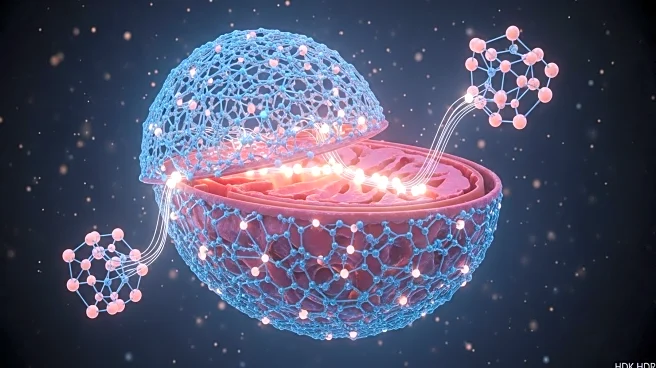What's Happening?
Researchers at Caltech have discovered new insights into the import of mitochondrial proteins, challenging long-standing biochemical models. Traditionally, it was believed that mitochondrial proteins are imported only after their synthesis is complete. However, the study reveals that up to 20% of these proteins begin entering mitochondria while still being assembled on ribosomes. This cotranslational import is influenced by protein folding mechanisms, particularly for proteins that are structurally complex and difficult to fold. The research highlights the role of mitochondrial targeting sequences and additional molecular signals in directing proteins during translation.
Why It's Important?
This discovery has significant implications for understanding cellular processes and could lead to advancements in therapeutic applications. By uncovering the mechanisms of cotranslational import, scientists can better manipulate protein import timing, potentially improving treatments for diseases linked to mitochondrial dysfunction. The findings also offer insights into the evolution of cellular machinery, emphasizing the sophisticated pathways developed for mitochondrial protein targeting. This research could pave the way for new strategies in biotechnology and medicine, enhancing the development of therapies targeting mitochondrial-related conditions.
What's Next?
Future research will focus on uncovering more mechanistic details of cotranslational mitochondrial protein import. Scientists aim to manipulate the timing of protein import, which could lead to therapeutic applications. The study opens avenues for exploring how cells evolved complex targeting pathways and how these can be leveraged for medical advancements. Researchers will continue to investigate the biophysical principles governing protein folding and import, potentially leading to breakthroughs in understanding and treating mitochondrial diseases.









